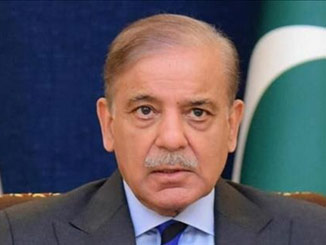

Pakistan Peoples Party (PPP) and Pakistan Muslim League-Nawaz (PML-N) reached agreement to form coalition government following the February 8th election with Pakistan President Shehbaz Sharif, 72, to become of the Prime Minister once again.
Mian Muhammad Shehbaz Sharif is a Pakistani politician and businessman who served as the 23rd prime minister of Pakistan, in office from April 2022 to August 2023, replacing Imran Khan. He is the president of the Pakistan Muslim League (N) (PML-N). Previously in his political career, he served as the Chief Minister of Punjab three times, making him the longest-serving Chief Minister of Punjab.
He was not the PML-N candidate for Prime Minister during the election. His brother Nawaz sherif who returned to Pakistan from self-exile after being ousted and imprisoned for corruption charges was his party leader to become Prime Minister. He was the longest serving Prime Minister having served three terms for a total of 9 years.
But because no party won a majority, Nawaz Sherif supported his brother to become Prime Minster again in deal brokered by the military, in return for his daughter Maryam Nawaz, who was also acquitted of corruption charges, to become the Chief Minister of Punjab.
Part of the brokered agreement, PPP co-chair Asif Zardari, 68, also becomes the country’s President again. He is the husband of the former Prime Minister the late Benazir Bhutto and served as President of Pakistan from 2008 to 2013, giving Pakistan two seasoned leader to lead the country. The country’s politics have been heavily controlled by it’s military.
Election corruption have been laid by popular former Cricketer and Prime Minster Imran Khan, also imprisoned on corruption charges, who’s party Pakistan-e-Insaf (PTI) and their party symbol, a cricket bat was banned from participating in the elections. Khan claims that charges against him were trumped up to prevent him and his party to run in the election. However, members of his party ran as independents and won the most seats in parliament, more than the other parties, but not enough to form a government. Their attempt to form government failed because they didn’t have party status. However, their election result was a major upset preventing any party to have a majority.
